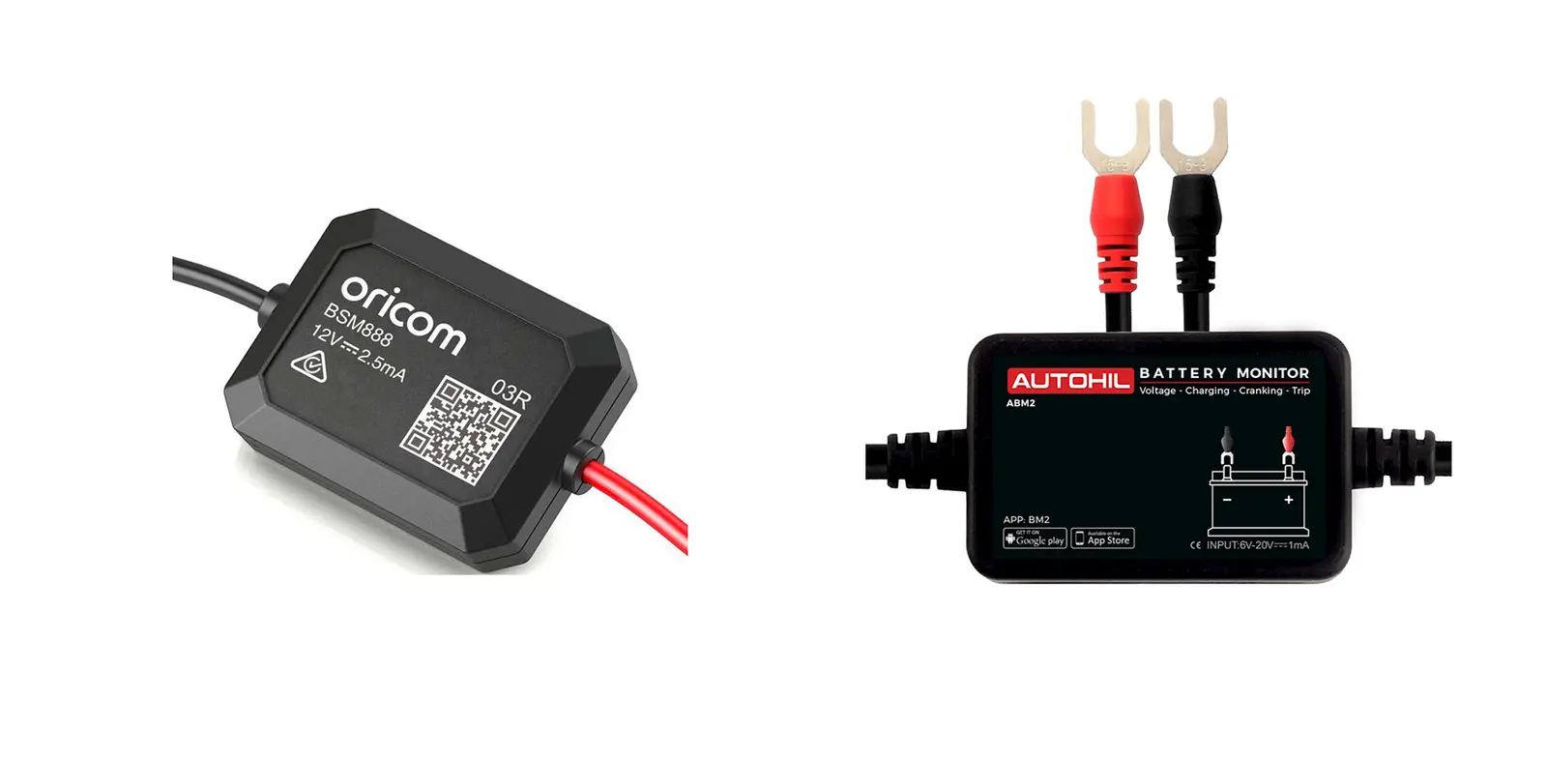I recently got sent a few battery monitors, and thought I’d install them to see what the fuss is all about.
The two battery monitors that I’ve reviewed are the Oricom Battery Sense Monitor, and the Autohil ABM2. Both these devices are designed to connect to your battery and monitor the performance. But what exactly do they do?
A Bluetooth Battery monitor allows you to track the voltage of your battery via your smartphone. It allows you to see how the voltage drops with usage, see the current condition of the battery, understand the cranking voltage, and also measure the charging voltage of the battery.
The voltage is useful as a measure of charge of the battery – as the battery depletes, the voltage drops, and once it gets below a certain level (usually 12V or below), then the battery is considered discharged, and may no longer start your vehicle.
If you are having issues with your vehicle, the monitor can check the charging voltage to make sure it is normal. If it is outside the acceptable ranges, that could help indicate an issue with the alternator rather than the battery.
The other thing that can be great about a battery monitor is connecting one where your battery may not be easily accessible as it can save time trying to get access to it with a multi-meter.
Out of the box, both the Oricom unit and the Autohil unit are very similar. They are designed to simply connect across the terminals of the battery, and also have built in circuit protection in case you wire them the wrong way.
The first thing I noticed with the units was that the Autohil cabling felt a bit thicker than the Oricom unit, although the Oricom unit comes with double sided tape to stick it to your battery, where the Autohil one doesn’t.
Connecting the monitors was as easy as easing off the nuts on the battery connections, sliding the clips in, and tightening again. From there, all I had to do was download the software. Details were included in the instructions, and after a few minutes, I had both apps installed.
- Main screen
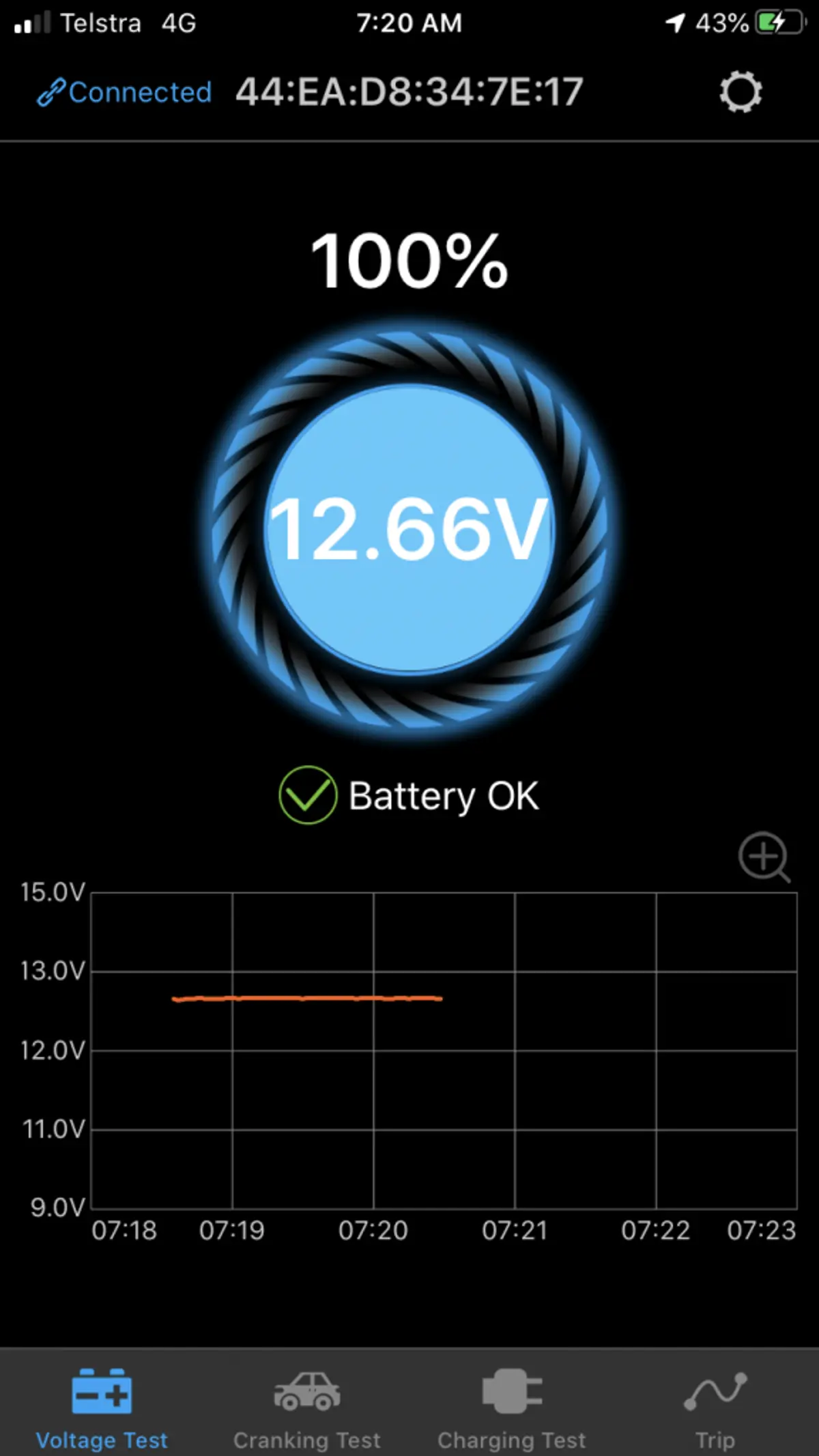
- Cranking voltage
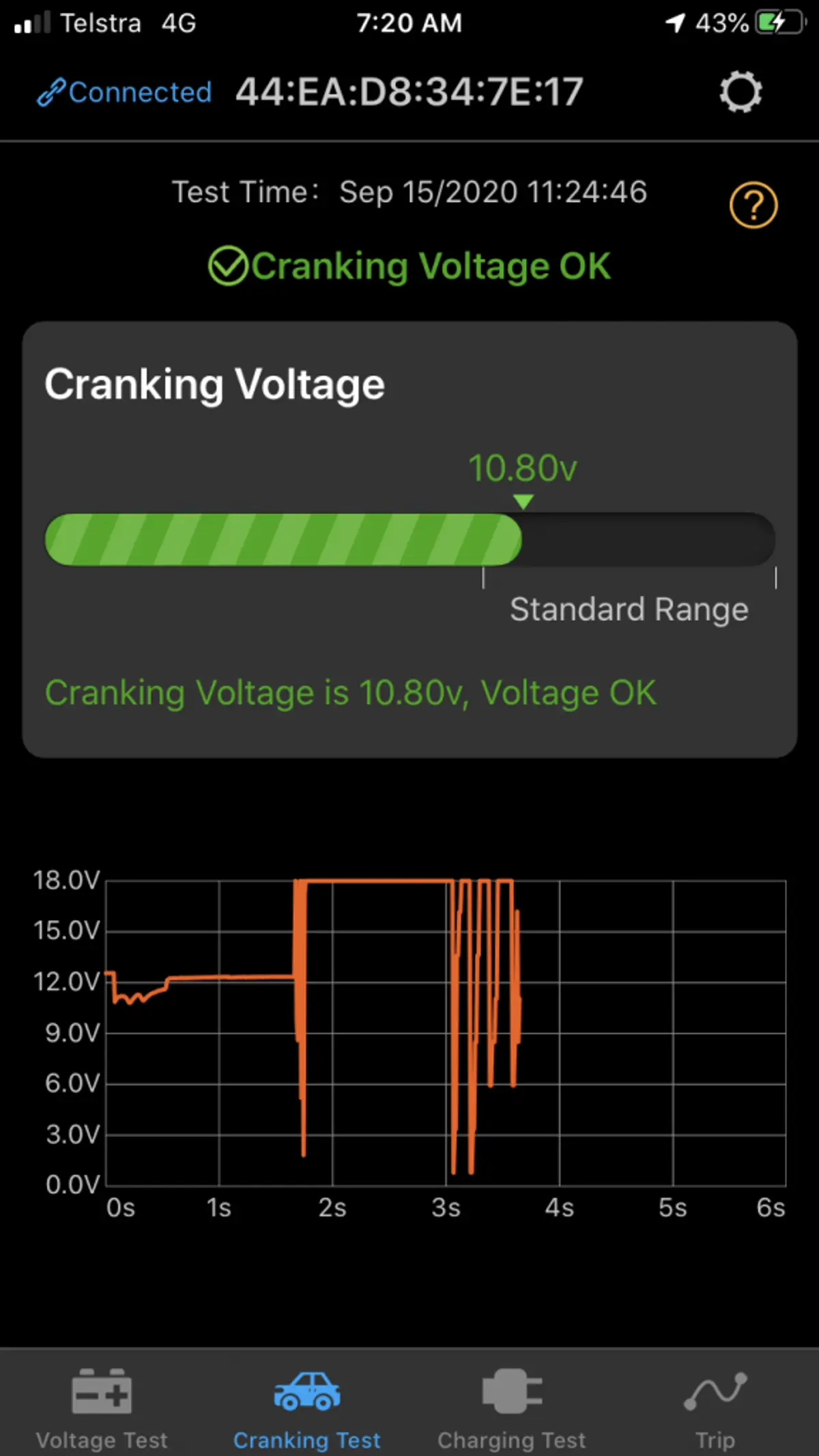
- Charging information
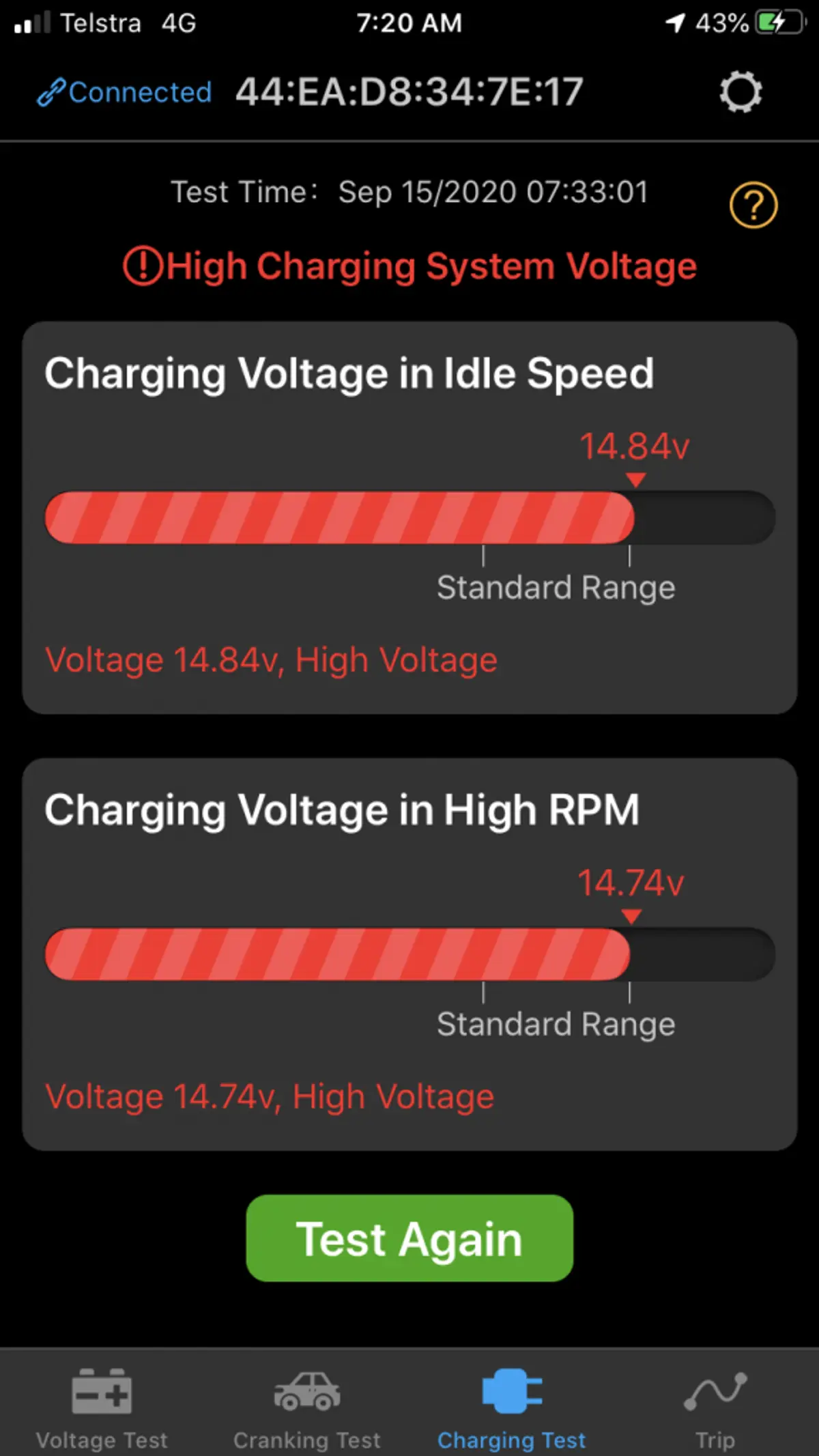
- Trip details
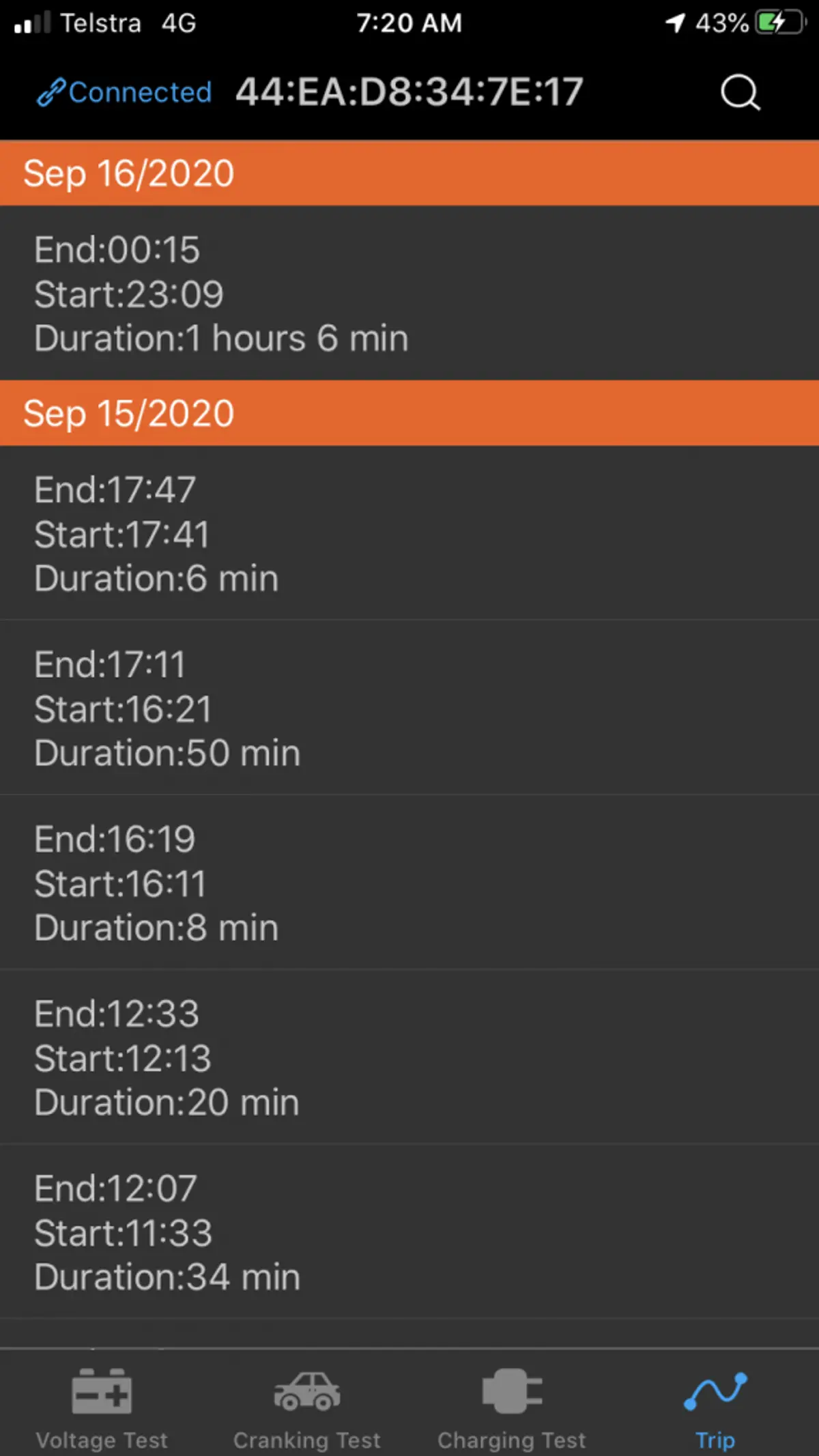
The Autohil App
In basic operation, both monitors were very similar, performing many of the same functions. The key differences I noticed were that the Autohil version only allows one battery to be monitored at a time. You can connect a second monitor and switch to that, but you can’t view them at the same time without paying for a multiple monitor app. The Oricom unit on the other hand, will allow you to monitor up to 4 batteries upfront.
- Main Screen
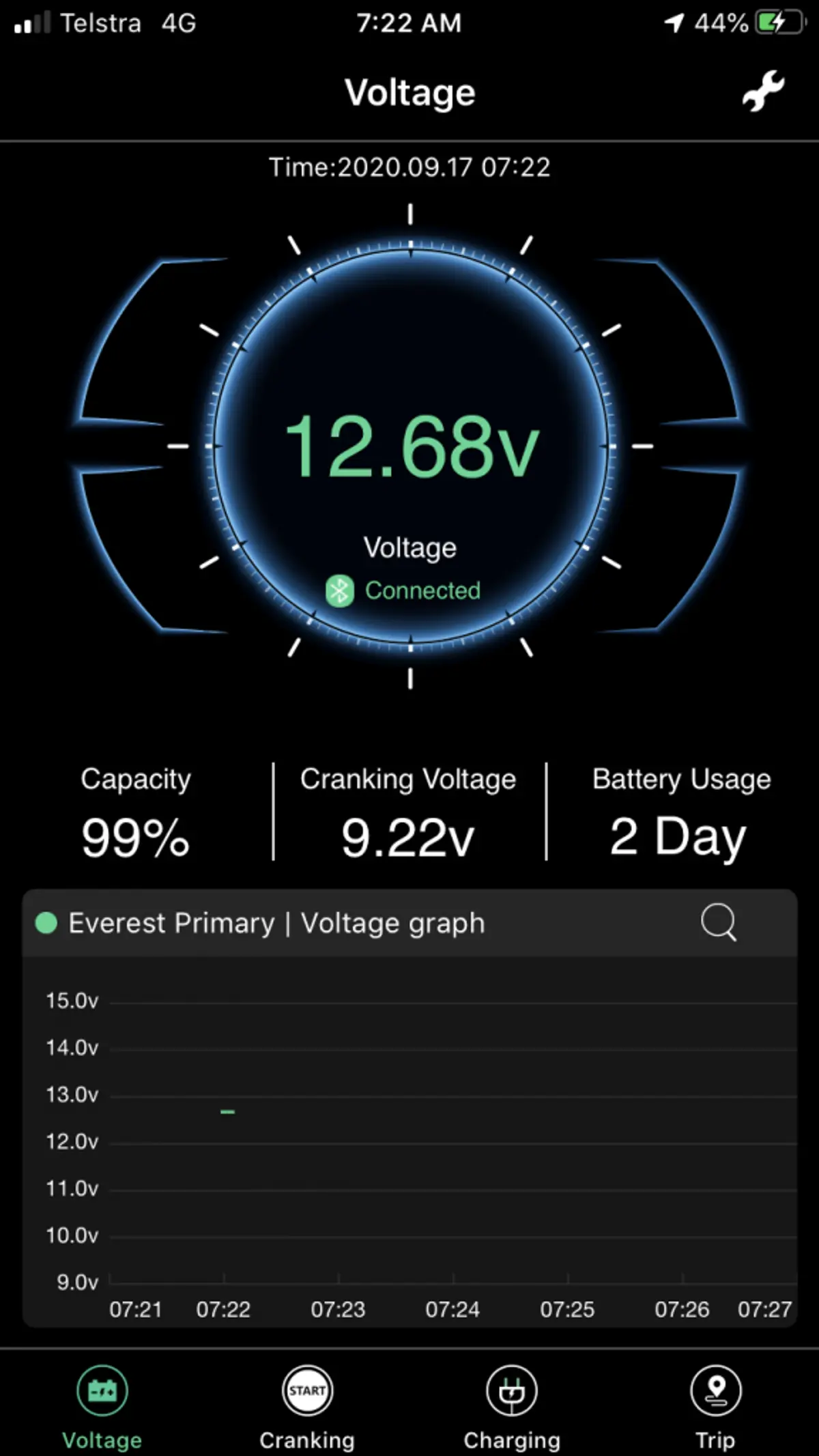
- Cranking voltage
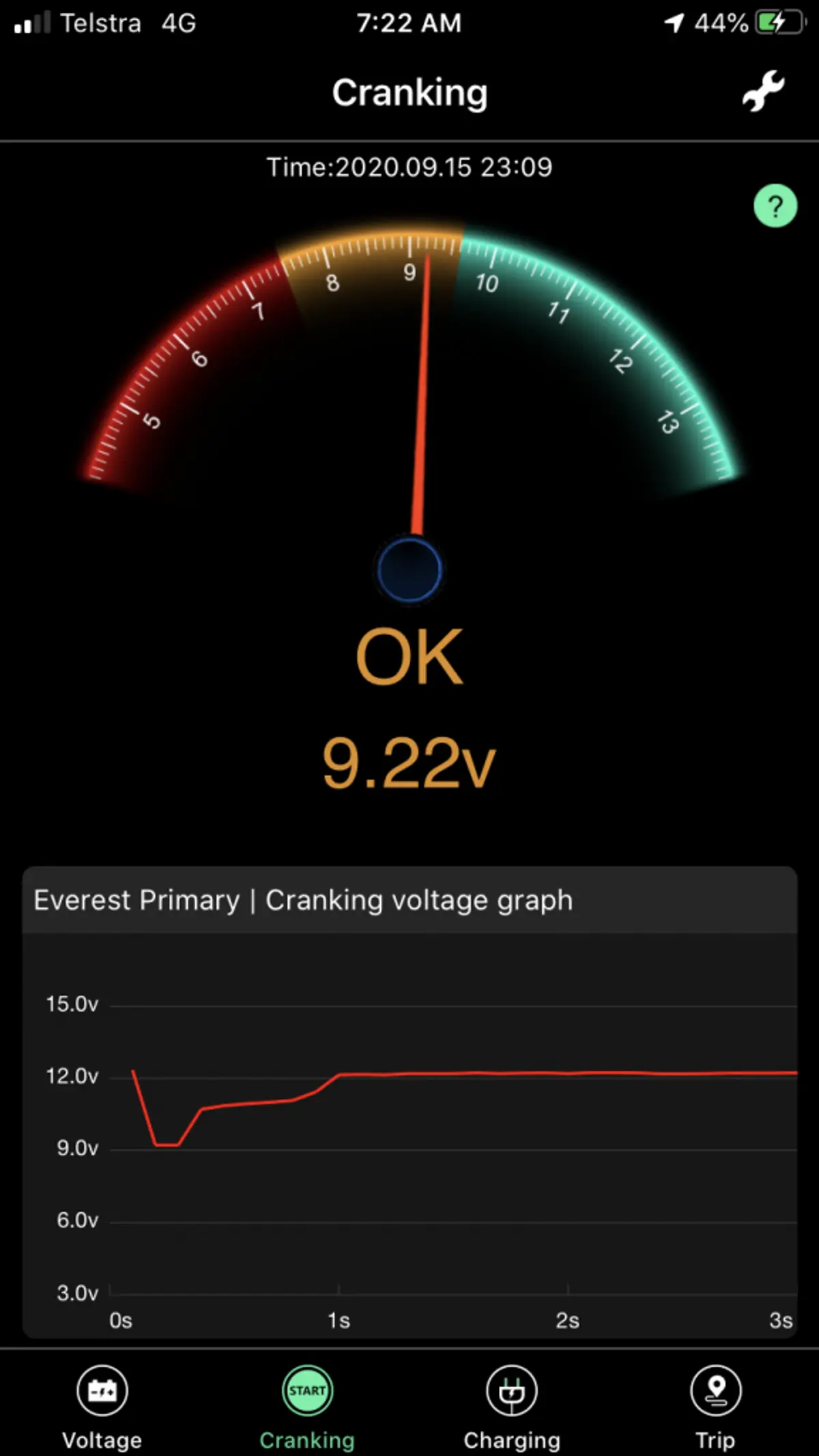
- Charging screen
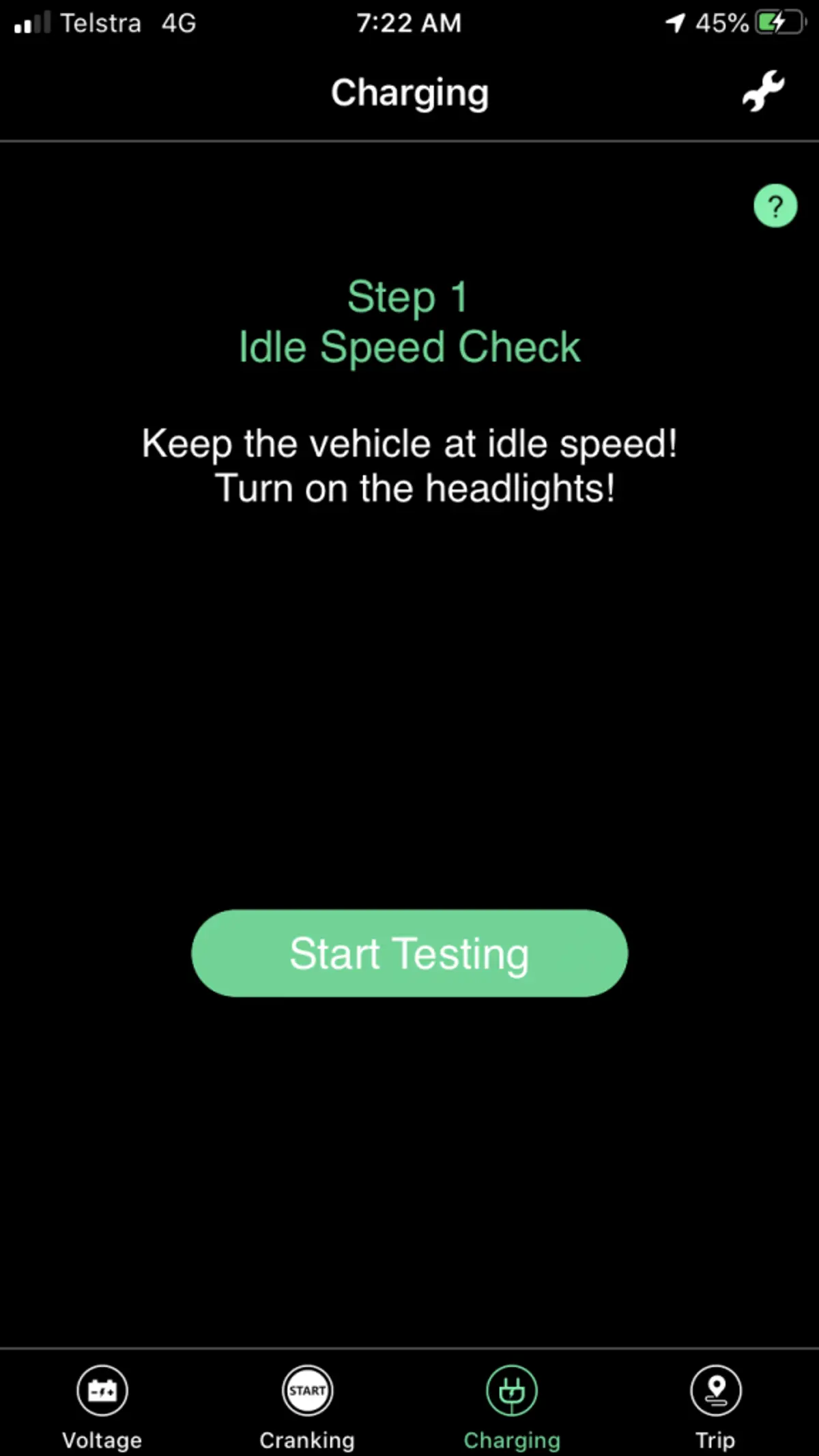
- Trip monitor
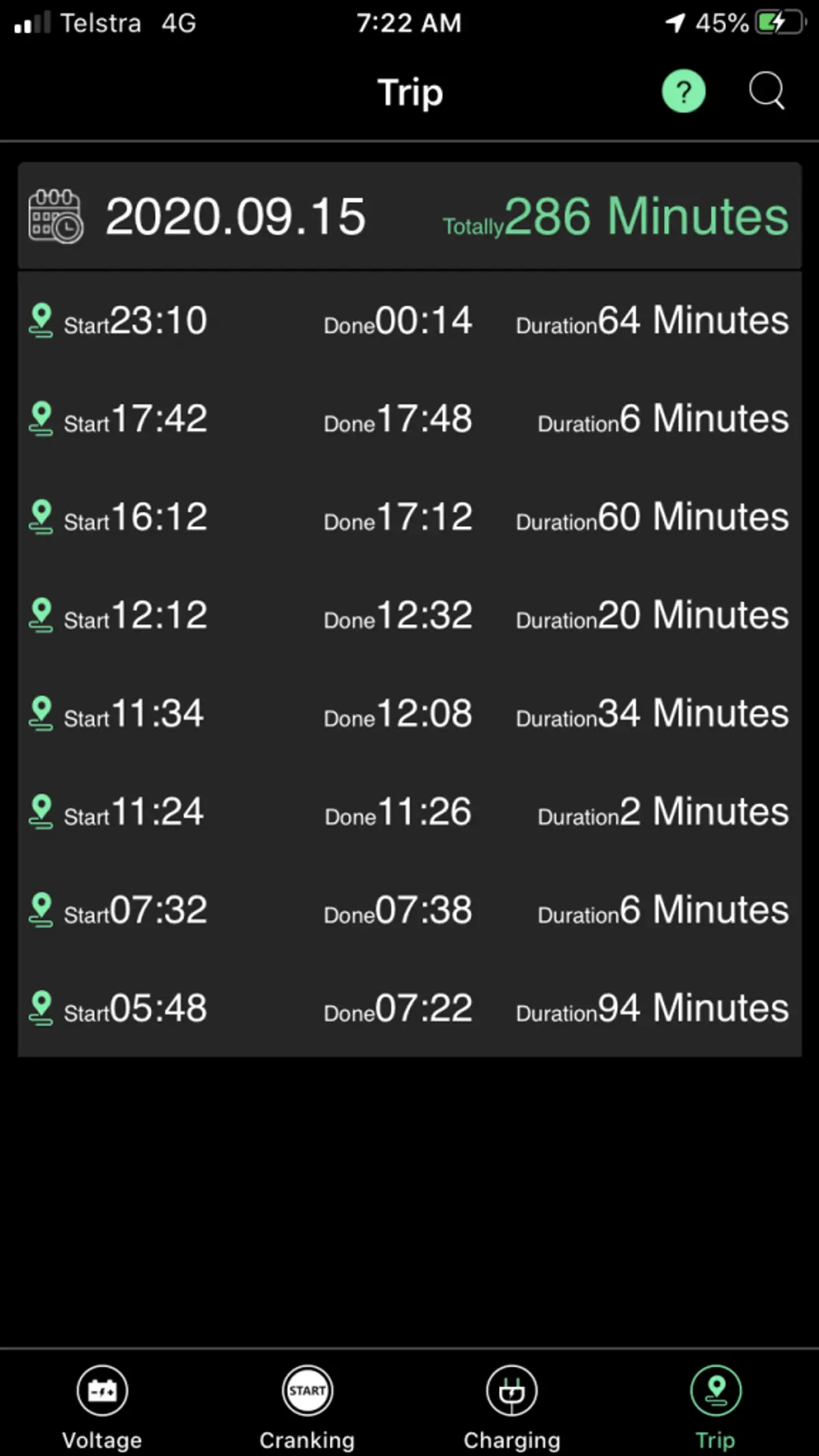
The Oricom App
In contrast though, the Autohil version allows you to set battery alarm levels to alert you when the battery is low. The Oricom unit will alert you to the status of the battery when in range, but I couldn’t find anywhere that it allows you to set the alarm levels.
Both products also track over a months worth of battery usage, and show the effect of voltage over time, so you can see how usage changes over the time of day, and also get a feel for the health of your battery.
Will they work on Lithium Batteries?
Yes, the monitors will work on a Lithium battery, however, with reduced functionality. The voltage will be displayed correctly, however, the profile built into the monitor is based on a regular lead-acid style battery rather than a Lithium battery, which means the charge state of the Lithium battery won’t be accurate because Lithium batteries voltage stays much more consistent during discharge than other types of batteries.
Price
Retail: Autohil ABM2 – $50.00
Oricom Battery Sense monitor: $59.00
Verdict
A Bluetooth battery monitor can be a useful tool to understand your battery condition, and what might be driving that. The Oricom version is more expensive, but comes with double sided tape to mount it more easily, and can monitor multiple batteries at once. The Autohil version is a little more customisable, and a little cheaper, but you’ll need to invest in upgrading to a paid app to manage multiple batteries at once, unless you are happy to manually switch between the monitors using the app.
More information


